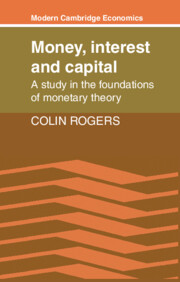Summary
Post-war monetary theory has been dominated by the neoclassical synthesis, the attempt to reconcile the general equilibrium theories of Wicksell and Walras with the analysis of the General Theory. It is now widely recognised that this endeavour has led to a dilemma for monetary theory. The best- developed models of the economy have no role for money so monetary theorists are forced to proceed without sound theoretical foundations.
This study proposes a solution to the dilemma by adopting a Marshallian perspective of the flaws in Wicksell's capital theory to reassess the monetary analysis of the General Theory. Seen in historical context the analysis begins with a reassessment of Wicksell's attempt to extend the relevance of the quantity theory of money to an economy with a well- developed banking system. This endeavour was taken up by Keynes in the Treatise on Money and ultimately led, in the General Theory, to the abandonment of the quantity theory and Say's Law. Analytically, the monetary analysis of the General Theory appears as a generalization of Wicksell's monetary and capital theory to a monetary system in which the real forces of productivity and thrift cannot determine the rate of interest. A capitalist economy is such a system.
- Type
- Chapter
- Information
- Money, Interest and CapitalA Study in the Foundations of Monetary Theory, pp. xv - xviPublisher: Cambridge University PressPrint publication year: 1989



